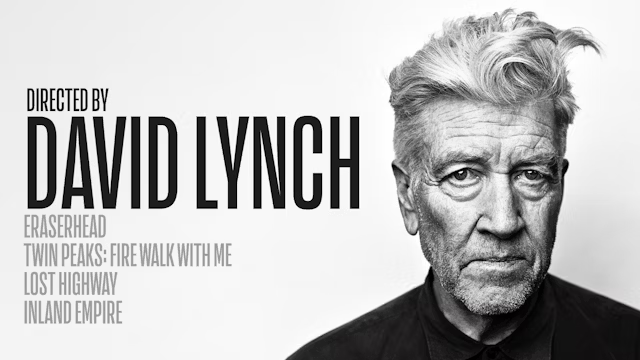We spoke in 2017. I thought I bungled the interview, but he said a lot more than I realized.

The one and only time I interviewed auteur David Lynch, I came away really disappointed with myself.
I’m remembering it all, of course, because Lynch’s family has posted on his Facebook page that the brilliant mind behind films like Eraserhead and Mullholland Drive and TV shows like Twin Peaks, has died. (Lynch announced last year that he had emphysema, a lung disease he blamed on a lifetime of smoking, which kept him homebound. NPR’s obituary is here.)
I interviewed Lynch back in 2017, when he was promoting Showtime’s revival Twin Peaks: The Return (my former colleague Nina Gregory was nice enough to go to his home in Outpost Estates near Los Angeles to record him, while I asked the questions over a telephone connection from Florida.)
He was, of course, smoking a cigarette when I called, and seemed nice enough. But I made the mistake so many journalists make of trying to ask the ultimate TV and film surrealist to explain his work in concrete terms, including asking him if he was deliberately trying to unsettle people.
“I just like to translate the ideas,” he said. “Sometimes the ideas are unsettling, and sometimes they’re funny. Sometimes they’re sad. Sometimes they’re kind of euphoric or whatever, but it’s the ideas that drive the boat.”

Still, now that I listen back to the raw audio, I see he said a great many compelling things about his artistic process, the film industry, the difference between TV and film and more.
Listen to the audio piece I did for NPR here. Below is the lightly edited transcript of our 15 minute conversation. Because of how it was recorded, I don’t have audio of my questions, so I provide headlines, just to present some context:
How the revival happened
LYNCH: Well, you know, (Twin Peaks) left with a message: I’ll see you again in 25 years. But I never really…I never really thought about going back. During those years. But I did think about the characters and the world, and I loved those characters and I loved that world. And one day, Mark Frost invited me to lunch at Musso and Frank here in Hollywood, and we started talking about going back into the world.
Ideas for the revival
There’s many things: There’s a mood to Twin Peaks. And in Twin Peaks, there’s a world and there’s also openings to other places. And I always go with the ideas. And so, wherever the idea takes you…ideas that, you know, you fall in love with. But there’s always the surface and there’s always a lot under the surface. And it’s sort of like life. I think the thing is, that I saw Twin Peaks as a film, and I guess that was the difference. You know, it was just exactly like making a film. Translating the ideas to the medium of film and then showing it though, instead of in a theater, showing it on a television.
Difference between TV and film
(TV had a) restricted palette in picture and restricted palette in sound. Even now in the theater, you have greater dynamic range, In TV, you got to compress things and, you know, go within a narrower, you know, you know, dynamic range. (Now TV ) it’s way, way better than it was. And there’s no commercials. So it’s pretty fantastic. And it gives you the, you know, ability to tell a continuing story. This is the magical thing to me…a story that, you know, can go on and on and go deeper into those worlds.
On whether he’s looking to disturb people
No, I just like to translate the ideas and sometimes the ideas are unsettling and sometimes they’re funny, sometimes they’re sad, sometimes they’re, you know, kind of euphoric or whatever. But it’s the ideas that drive the boat always and forever. It’s all based on ideas. So whatever it was, you know — at least when I was working on it — it was it was translating those ideas. And so it ends up being, you know, what it is. And you try to stay true to the idea all along the way and get every element to feeling correct as you go. And then it has a chance of holding together at the end.
Well, at first it’s based on love — love of the idea. And then we have, whether you read a book or read a script or catch an idea, it’s all sort of the same. A picture forms in your mind and a sound or sounds come along with that picture. And a mood comes along with that picture and characters come along with that picture. The way they talk…the words come off the page or the idea comes into what they call the conscious mind. And you see it and, and then you try to remember that. If it’s an idea that just came to you, you were supposed to write it down in such a way that when you read those words, the idea will come back in full. So then it’s just a matter of staying true to that idea.
It’s all the same. You translate the ideas to one medium or another. Like a cinema idea, you know it’s a cinema idea and a painting idea…you know it’s a painting idea. But you get a thrill, you fall in love with the idea, and then you go to work trying to get that idea from an abstract thing to a concrete thing.
On stories previewing films
Speaking for myself, I don’t want to know about a film before I go see it. I want to discover it. I want to have that magical thing of, you know, I always talk about the curtains opening, the lights going down, and you get to go into a world and you get to discover it and have this experience. And nothing should pollute that. No noises or strange occurrences. You know, the best way is to not know what you’re going to go into and have a quiet place with, you know, not brightly lit and have as big a screen and the greatest sound as possible. Then you got a chance of going into that world and having that experience.
Is he concerned about more people watching movies at home?
A huge concern. But, you know, there’s nothing I can do about it, but I would just recommend, you know, like to turn the lights down and keep it as quiet as possible. And then you have a chance of having an experience. And it would be, you know, would be great if people did that as TVs are getting bigger, sound is getting better, and it’s getting more and more possible to have a have a really good experience in the home.

On whether producing something for TV changes his process
It doesn’t affect my process arrest. The process should be stay true to the ideas and translate them as good as you can, every single element. But I love, love the people that love Twin Peaks. I met a bunch of them, and all turned out to be, you know, really great people. And so it’s kind of…You know, you don’t make it for an audience. But when people enjoy, you know, what we did, it’s a good feeling.
I think, you know, everybody’s different. You know, on the surface of life. So people get different things from the same thing and it’s just sort of the way it is. But, you know, there’s. There’s a thing. Ah, this mystery. And I think…everybody loves a mystery. And to go into a world where they are taking place.
On being discouraged by film industry’s emphasis on blockbuster movies
During that time, feature film, the whole world of the feature film changed so much. And I sort of got depressed about feature films and I was painting and, you know, working on other things. But now, you know, the art houses are all gone. If I made a feature film, it probably would play in New York and L.A. for a week and then go to you’d see it on the TV screen. So it’s a different world for features now. The big screen and the great sound is being used for different kind of films. And, you know, but things go in waves. Maybe there’ll be a time coming when many different types of film can get the big screen experience again, or home screens will get giant and killer sound. It will be it would be great if that happened.
I love getting ideas that I love. And if I get those ideas, I love to make the thing and I like a continuing story. So all those things, if those things come along, I’d be there. Front row center.
They’re telling me that I can’t talk anymore here now.
I hope you like it, Eric. And I’ll talk to you again sometime, I hope.